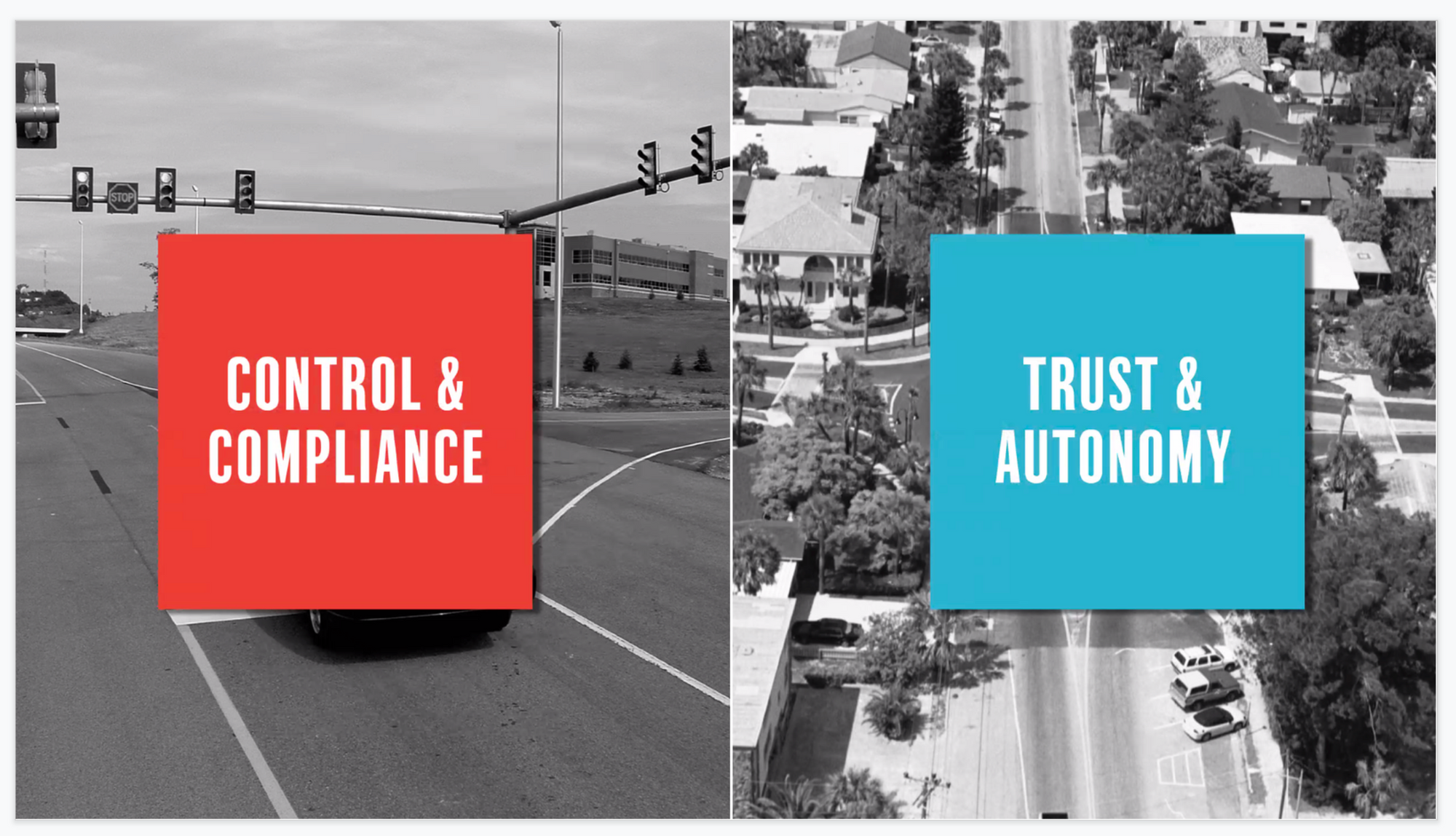Execs and Managers: An Engineer's perspective on Roundabout Culture

Last night, I was in a Lyft with Brandon, one of Armory's engineers. For the past few months, Armory has had a very strong focus on creating a "Roundabout" vs. "Stoplight" culture. I asked him how that transition has felt for him.
As he was talking, I asked him if I could record what he said, because it's so important for executives and managers to understand. He said back to me Yes! I'm more than happy to share it with the world! I want more people to understand the pain that I think a lot of engineers go through.
As I talk to execs (especially at large, Global 2,000 enterprises) what I often hear is an urgent desire to innovate faster – while at the same time, a reluctance to move away from the company's strong Command and Control structure. My belief, as I wrote in this VentureBeat article, is that companies cannot optimize the former without also addressing the latter.
An important step in understanding this is to also understand how the engineers in a company – those building the value – feel about the current structure. Here's what Brandon had to say:
And here are some quotes from the audio above:
My last job was very "Do what your boss says" no matter whether the boss was correct from a technical standpoint... it really killed me. I really love to learn. I felt really stifled. I just felt like giving up.I was at that job for five years. I felt like my technical decisions don't actually matter... every day I felt like "can I just say home?" I didn't want to go to work. It was really stressful.I feel like a really large percentage of engineers at enterprises feel this way. You need to empower your people to actually do what you hired them to do.- DROdio:
From the perspective of CEOs and managers in a Command and Control structure, everything seems to be great!Brandon:When my boss said I had to do something in a certain way, I would have to do it that way. You lose a bit of your soul in the process. - DROdio:
How do you quantify the cost of a Command and Control structure? What percentage of your ability to innovate did you retain?Brandon:Practically zero. It was very mood killing. I didn't want to be there. I would do a minimal amount of work. I'd have a month or two to do a project... I'd sit on it for a while. I'd do it a couple of days before it was due. It was very soul crushing. That's why I started looking for other jobs.
That last quote is the most important one: Brandon's ability to innovate was reduced to "practically zero." This is why creating a Roundabout Culture is so important in modern knowledge work companies.